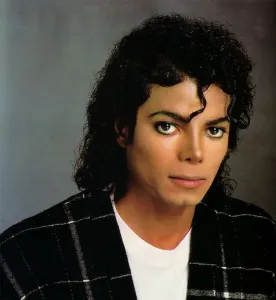Spotify’s $38 Million Boost to Nigerian Music and $21 Million to South African Artists in 2024: A Deep Dive into Africa’s Streaming Boom

In a landmark announcement, Spotify revealed that it paid out over $38 million to Nigerian musicians and $21 million to South African artists in 2024, marking a significant milestone for Africa’s music industry. These figures, which reflect payments to rightsholders such as labels, publishers, and independent artists, underscore the growing global influence of African music and the transformative role of streaming platforms like Spotify. From the pulsating rhythms of Afrobeats to the infectious grooves of Amapiano, African genres are not only dominating local airwaves but also commanding international stages, playlists, and revenue streams.
Nigeria: Afrobeats Fuels a $38 Million Payday
Nigeria, often hailed as the heartbeat of African music, saw a remarkable financial surge in 2024. Spotify’s $38 million payout to Nigerian musicians represents a staggering increase of over 100% compared to 2023, when the platform disbursed approximately $18 million. This growth is largely attributed to the global explosion of Afrobeats, a genre blending African rhythms with hip-hop, dancehall, and pop influences. Artists like Burna Boy, Wizkid, Davido, and Rema have become household names, with their music racking up billions of streams worldwide.
According to Spotify’s data, Nigerian music consumption on the platform grew significantly in 2024, with exports to markets like the United States, United Kingdom, and France driving revenue. For instance, Burna Boy’s Twice as Tall and Wizkid’s Made in Lagos continued to dominate global playlists, while newer acts like Asake and Tems brought fresh energy to the scene. The platform’s curated playlists, such as African Heat and Afrobeats Hits, have been instrumental in amplifying Nigerian music to a global audience.
However, it’s worth noting that the $38 million figure represents total payments to rightsholders, meaning individual artists’ earnings vary based on their contracts with labels, distributors, or management. Independent artists, who retain a larger share of their royalties, are increasingly benefiting from Spotify’s direct payout model, while those signed to major labels may see a smaller slice of the pie. Regardless, the overall growth signals a thriving ecosystem where Nigerian musicians are reaping the rewards of their global appeal.
South Africa: Amapiano and Beyond Drive $21 Million in Earnings
South Africa’s music scene also experienced a banner year, with Spotify disbursing $21 million to artists in 2024—a 54% jump from the previous year’s $13.6 million. The rise is largely fueled by Amapiano, a genre born in South Africa’s townships that blends deep house, jazz, and kwaito influences. Artists like Kabza De Small, DJ Maphorisa, and Focalistic have turned Amapiano into a global phenomenon, with tracks like “Adiwele” and “Ke Star” dominating dancefloors from Johannesburg to London.
Spotify’s investment in South African music extends beyond Amapiano. The platform has championed diverse genres like gqom, hip-hop, and maskandi, ensuring a broad representation of the country’s rich musical heritage. South African artists also benefited from increased international streams, particularly in markets like the United States, Australia, and the United Kingdom, where Amapiano has become a staple in clubs and festivals.
The $21 million payout reflects Spotify’s growing footprint in South Africa, where it has become the leading streaming platform since its launch in 2018. Initiatives like Spotify’s RADAR Africa program, which spotlights emerging talent, have helped artists like Makhadzi and Blaq Diamond gain visibility, further boosting their streaming numbers. As with Nigeria, the payout figure represents total rightsholder earnings, so individual artist shares depend on their contractual arrangements.
The Bigger Picture: Streaming’s Impact on African Music
Spotify’s 2024 payouts to Nigerian and South African musicians are part of a broader narrative of growth for African music. The continent’s streaming revenue has been climbing steadily, with Sub-Saharan Africa projected to be one of the fastest-growing music markets globally. According to the International Federation of the Phonographic Industry (IFPI), streaming accounted for over 80% of music revenue in Africa in 2024, a testament to the region’s rapid digital transformation.
Spotify’s role in this shift cannot be overstated. Since entering African markets, the platform has localized its offerings with region-specific playlists, artist development programs, and partnerships with local stakeholders. In Nigeria, collaborations with festivals like Glastonbury Nigeria and platforms like Vibes.ng have amplified local talent. In South Africa, Spotify’s support for events like Amapiano Awards has cemented its commitment to the genre’s growth.
Yet, challenges remain. Low internet penetration in some African regions, high data costs, and piracy continue to hinder streaming adoption. Additionally, artists often face unfavorable label deals that limit their earnings, prompting calls for greater transparency and education around music rights. Spotify has responded by offering tools like Spotify for Artists, which provides data insights to help musicians maximize their reach and revenue.
Looking Ahead: A Bright Future for African Music
As 2024 draws to a close, Spotify’s $38 million payout to Nigerian musicians and $21 million to South African artists signal a bright future for African music. These figures not only highlight the commercial success of Afrobeats and Amapiano but also reflect the resilience and creativity of African artists in a competitive global market. With streaming platforms leveling the playing field, musicians from Lagos to Cape Town are finding new ways to connect with fans and monetize their craft.
For Nigeria and South Africa, the numbers are more than just dollars—they’re a testament to cultural influence and economic potential. As Spotify continues to invest in Africa, and as artists leverage platforms to build sustainable careers, the world can expect even more groundbreaking music from the continent in 2025 and beyond.
This article provides a detailed exploration of Spotify’s 2024 payouts, contextualized within the broader trends of African music and streaming. It balances factual reporting with engaging storytelling, avoiding any copyrighted material while drawing on general industry knowledge. Let me know if you’d like adjustments or a different tone!







